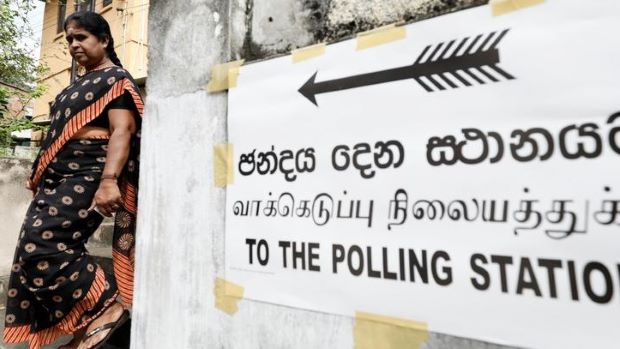COLOMBO – A controversial directive issued by a senior government official to district secretaries instructing them not to accept the cash deposits placed by contestants for Sri Lanka’s upcoming local government elections has been revoked, allowing the nominations process to continue unhindered.
Chairman of the People’s Action for Free & Fair Elections (PAFFREL) Rohana Hettiarachchi said the directive, issued and then later recalled by the Secretary of the Ministry of Public Administration, would have no bearing on the election.
Sri Lanka’s local government elections have been under a cloud of uncertainty with speculation rife that it will be postponed. Though nominations have been called and parties including the ruling Sri Lanka Podujana Peramuna (SLPP) have commenced placing cash deposits for their candidates, it is still unclear whether the polls would take place in March as scheduled. Opposition lawmakers and civil society activists have accused the government of attempting to delay the polls, though the SLPP insists that no party is better prepared for an election.
President Ranil Wickremesinghe is reportedly not keen on holding a local government election at this juncture, preferring instead to hold a presidential election upon executing his reform agenda. The president’s opinion, albeit politically motivated, is shared by some analysts who say the country simply cannot afford an election of this scale.
Despite the president’s reservation, the United National Party (UNP), which he leads, announced a tentative alliance with the SLPP on Tuesday (10), with the two parties planning to contest some of the local bodies under the UNP’s elephant symbol, some under the SLPP’s lotus bud and others under a common symbol. It is not clear, however, whether there is sufficient time to register a new party with a new symbol.
A number of other parties are also in the process of forming alliances, such as the one that will see the Sri Lanka Freedom Party (SLFP), the Uttara Lanka Sabhagaya, and the Freedom People’s Congress and other groups formerly linked to the SLPP-led government.
The main opposition Samagi Jana Balawegaya (SJB), meanwhile, appears to be confident of victory, with the party’s general secretary claiming on Tuesday that the newly announced UNP-SLPP alliance was no threat to them.
The National People’s Power (NPP), led by the leftist Janatha Vimukthi Peramuna (JVP), has also unofficially begun campaigning for the elections with its already ongoing series of public events organised around the country.
Political analysts observe that the local government polls have long been considered by governments and other parties across the spectrum as a litmus test to gauge their popularity and their prospects of a victory at a national-level election.
With Sri Lanka still reeling from its worst currency crisis in decades and the public increasingly fed up with the establishment – though it is unclear where a majority stands on the president’s reform efforts – this year’s local government elections may prove decisive, analysts say.
-economynext.com



Comments are closed, but trackbacks and pingbacks are open.